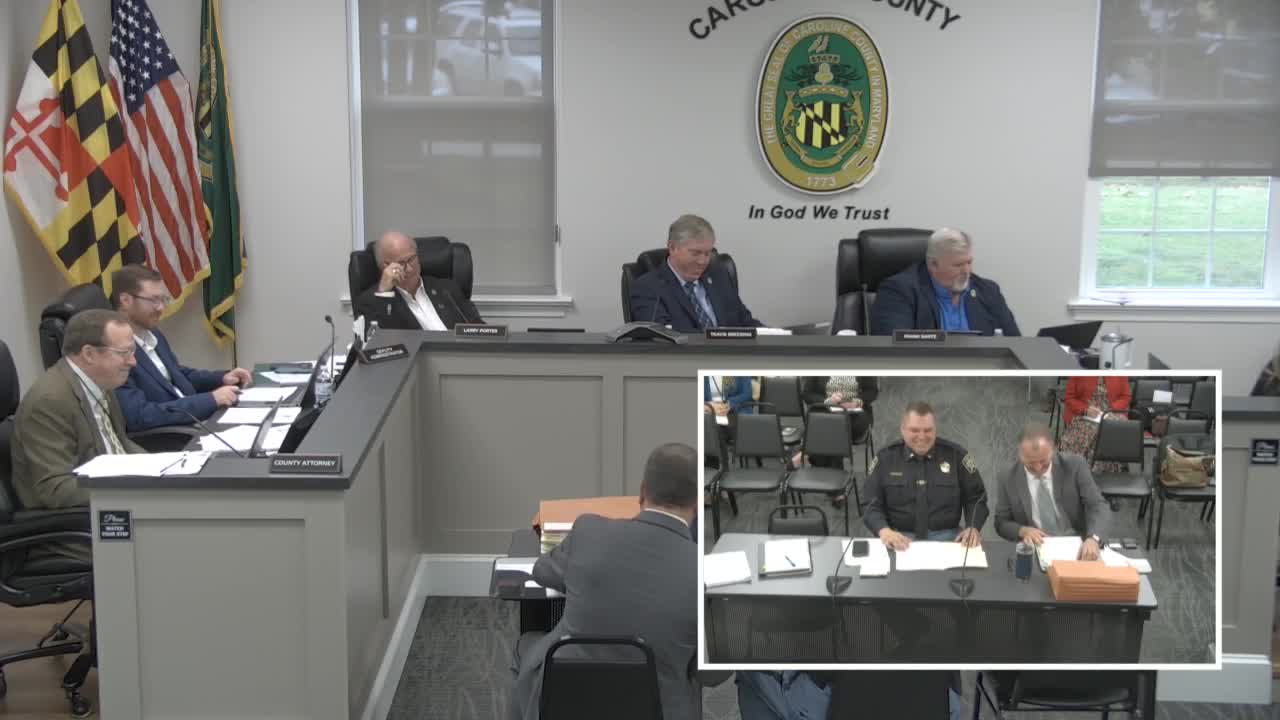Sheriff’s office leads overhaul of Caroline County animal control ordinance; changes to MOU with Humane Society expected
Get AI-powered insights, summaries, and transcripts
Subscribe
Summary
County attorneys and sheriff’s office staff told commissioners they have rewritten the county animal control ordinance — the first comprehensive update in about 28 years — and will next consult the Caroline County Humane Society to align procedures and the county’s memorandum of understanding.
Sheriff’s Office attorneys and animal‑control staff told Caroline County commissioners on Oct. 28 that the county has substantially revised its animal control ordinance and forms after an 18‑month review.
Jesse Hammock, county attorney, and Lieutenant Jake Andrews explained two main drivers for the overhaul: responsibility for animal‑control oversight has shifted to the sheriff’s office and state law has changed in places since the county’s ordinance was last comprehensively updated nearly three decades ago. The draft ordinance updates definitions, citation schedules and operational forms; it also reflects statewide statutory language where required.
Hammock and Andrews said the rewritten ordinance is intended to reflect day‑to‑day enforcement realities, improve processes for officers, and clarify procedures used when animals are impounded, when owners dispute enforcement and before hearings of the county’s animal control board. The team also said it has updated forms and exam‑tested procedures with field officers during the drafting process.
Next steps: Hammock said the county will now present the draft ordinance to the Caroline County Humane Society and its counsel to reconcile the county’s proposed changes with the existing memorandum of understanding (MOU) between the county and the society; the MOU governs sheltering, intake and other shared responsibilities.
Commissioners and staff discussed a number of topics that will be addressed in the MOU and any future ordinance: the county currently requires dog licensing under Local Government Article language included in the code, but registration has been largely handled by the Humane Society and only about 100 dogs were on the society’s registration list, Hammock said. Commissioners expressed reluctance to require a new county staff burden to enforce dog licenses and suggested approaching the legislature if county officials want to change the statewide requirement.
Other operational issues raised in the discussion included the scale of civil penalties (fine schedule will be reviewed), multi‑dog and breeder/kennel licensing that rarely have been used locally, and whether the animal control board should retain subpoena power for administrative hearings (some commissioners expressed concern about the time and expense of forcing attendance via subpoena in administrative matters).
Why this matters: The revised ordinance and the updated MOU will determine who performs animal control services, how hearings and enforcement proceed and how sheltering and licensing responsibilities are shared between the county and the Humane Society.
Ending: Hammock said staff will meet with the Humane Society, continue refining the ordinance and return to the board for further action.
